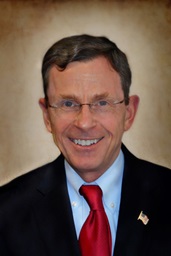I suppose most of the people who have been glued to the events of General Conference this week are United Methodists, but there’s at least one online fan from outside the UMC. (Didn’t somebody say during a plenary session that “The world is watching”?) The stranger peering over the camera’s shoulder, getting repeatedly caught up in energetic debate and the amendment to the amendment, is me. Here’s why, and here’s what I’m getting out of the hours I have been spending with the live-streamed proceedings and the Twitter feed that accompanies it.
I’m a lay person, recently retired from my career, moderately active in my home congregation of the United Church of Canada. I was sorry that, as far as I could tell, the United Church didn’t figure in Tuesday night’s ecumenical celebration at General Conference, but perhaps you didn’t think we were exotic enough. Some UMC people may not be familiar with the United Church, which is a merger (since 1925) of Methodists with Presbyterians and Congregationalists, and (since 1968) with the EUBs.
My interest in the UMC comes partly from a friendship I happened to form some years ago with one prominent figure in the church, whose face appears every so often in the GC livestreaming. I’ve talked with him at length about church affairs, and the differences between how the UMC does things and what I’m used to in the UCCan. I served for a number of years as a lay representative on our Presbytery (regional unit) and Conference, so I can absolutely relate to discussions of the interdependence between local congregations and Conference leaders, the problems of boards and agencies, the way budgeting tends to swamp theological priorities, and so on. But I do see interesting differences between how you do things and how we do them.
The most striking thing, of course, is the international and multicultural nature of the UMC. The United Church has a few French-speaking activities and a modest number of Native congregations, but I don’t come across those here in urban Ontario, and certainly we don’t have representation from places like Katanga, Denmark, or even (almost as exotic to a Canadian as Liberia) the Alabama-West Florida Annual Conference. It’s exciting to see the glib things we all say about “the church universal” made concrete by the variety of accents and the need for interpreters.
It’s also remarkable to see the chaotic atmosphere in which General Conference works, the healthy democracy of passionate disagreement and frequent demands to suspend the rules to do what Conference members, not leaders, want. I haven’t seen a Canadian church assembly with anywhere near that level of feistiness, and I envy you because I think it probably leads to better decisions, more reflective of what the church as a whole wants. Of course the impression of chaos and rebelliousness is increased tenfold when I look at the discussion on Twitter as well as listen to it from Tampa. There’s a lot of mistrust going on, as many people have pointed out, but it does seem to me that what the church (as personified by the 988 delegates) wants, the church eventually gets, whether it’s bold action on some issues or continued indecisiveness on others.
And third, I find it fascinating to see how a church works that’s led by bishops, people with a permanent title that sets them apart and demands that they show leadership even in impossible situations. Twitter tells me that the bishops aren’t universally admired, but applause from the floor of the convention (particularly for those retiring this year, Peter Weaver and the rest, introduced on Tuesday) suggests that there’s lots of respect and affection. When I see them in action, the aristocratic Patrick Steiff, the warm and funny Janice Riggle Huie, and the rest, I can absolutely see why. (The United Church has no bishops; we’re more Presbyterian in that regard, with elected officers, including a national Moderator, who serve for short terms. I’ve always thought we were wise in that regard, but I’m not as sure as I used to be.)
Thank you for fascinating debates, glimpses of great personalities, the challenge to think about tough issues that will no doubt be facing my church just as they’re facing yours.
Thank you for online images of powerful worship. Thank you for glimpses of touching and sometimes quirky tradition, including the singing of “And Are We Yet Alive” at the opening plenary.
(The agenda is called the Daily Christian Advocate? Really?) Thank you for the opportunity to think more about Wesleyan theology than I normally get the opportunity to do.
And for those on the floor of Conference, and especially on Twitter, who think the United Methodist Church is disintegrating, sinking out of sight, fissuring and fizzling out: No, it isn’t.
Please, don’t be so fatalistic. It’s obvious to this outside observer that your church is a healthy community of talented, dedicated people doing wonderful things. You have problems; you’re working to fix them; that’s what governing bodies and leaders are for, and of course it’s not always easy. Watching General Conference this week would make me proud to be a United Methodist — if only I were a United Methodist.
Chris Redmond is a writer and grandfather, and a member of Westminster United Church in Waterloo, Ontario, Canada.
Like what you're reading? Support the ministry of UM News! Your support ensures the latest denominational news, dynamic stories and informative articles will continue to connect our global community. Make a tax-deductible donation at ResourceUMC.org/GiveUMCom.




